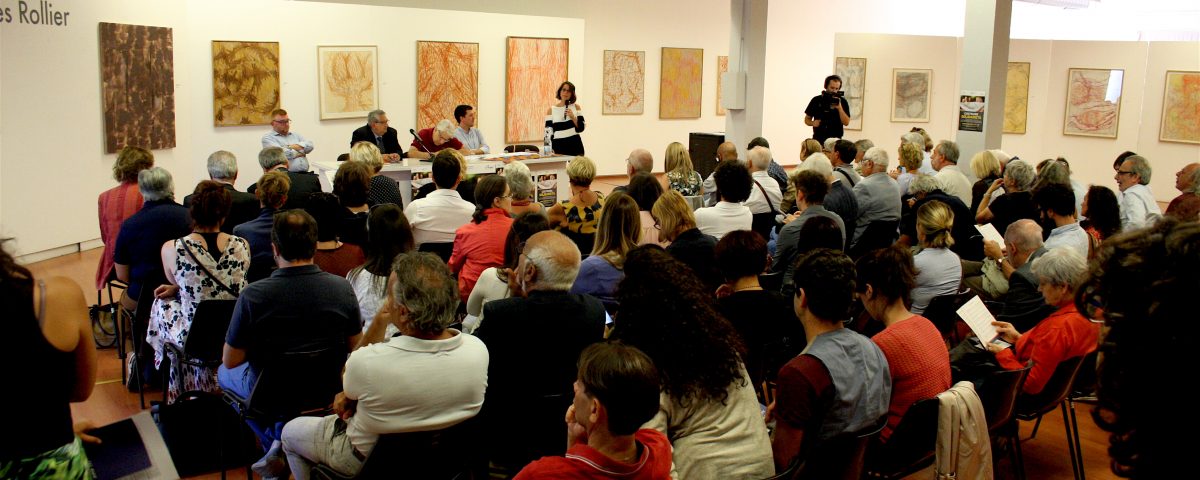- Mediterranean Hope - Federazione delle chiese evangeliche in Italia
- mh@fcei.it
The right place to stay
The meeting with Luigi Manconi organised by the Waldensian Diaconia and the Federation of Protestant Churches in Italy on migration provided food for thought
Torre Pellice (NEV/Riforma.it), 27 August 2018 – “I want to immediately question the category that is at the heart of this meeting entitled ‘Building Solidarity’. Solidarity is a wonderful virtue, however, it requires an unequal relationship: it involves an act or a thought from those who have a lot of wealth, and who decide to give a part of that wealth to those who have nothing. Solidarity implies inequality and therefore risks to always remain within the sphere of donation and charity.” It was with this provocation that Luigi Manconi, a MP for many terms and founder of the “A Buon Diritto” association opened the meeting organised by the Waldensian Diaconia (CSD), Federation of Protestant Churches in Italy (FCEI) and MH – Mediterranean Hope, which was held today Monday, 27 August during the annual Synod of the Methodist and Waldensian churches underway in Torre Pellice (TO) from 26 to 31 August 2018.
According to Manconi, it is better to “refer to the concept of reciprocity, which I believe is the foundation of the human community. The destiny of a person, from the outset, is not one of immediate sociality; instead, a tendency to isolation and solitude prevails. The state of danger is what leads us to take an important step towards mutuality and sharing. This is what shows our vulnerability. This is where the relationship between human beings is born, which is then expressed in different ways.” “In these 24 months,” concluded Manconi, “the right-duty to rescue, to mutual aid, to a mutuality that goes beyond solidarity has been undermined. Today, after the activities of the NGOs in the Mediterranean which started in 2015, and after many words and intimidations, and after an indecent activity of denigration, not one member of these organisations has been sent to trial for any crime. This gives me the power to say that so far there are no objections to the work they are doing, instead they are putting in place an essential demonstration of mutual aid intended to save a human life, and with it, the whole world”.
The debate was opened by Marta Bernardini, Mediterranean Hope operator on the island of Lampedusa. “This is an opportunity for a moment of reflection on what our churches have been experiencing in the last few years, on the social commitment they are implementing with particular reference to migration in Europe”.
Paolo Naso, coordinator of the Mediterranean Hope programme organised by the Federation of Protestant Churches in Italy, reviewed the last five years of the Italian protestant churches’ deep commitment to the reception of migrants after the “terrible tragedy that occurred off the coast of Lampedusa in October 2013. Those 368 deaths also questioned all of us. Hence, the decision to commit ourselves on all fronts, with the great support of the Waldensian Church and other churches of the FCEI. We decided that we had to stay in Lampedusa first, and then in the entire Mediterranean. We must thank the many volunteers and others who have put their lives on the line to help us and to support this idea”.
Francesco Sciotto, pastor in the churches of Scicli and Pachino (Ragusa) and CSD member, began by recounting an episode of the Gerasene Demoniac (Mark 5:1-20) to introduce a term “central in our reasoning: marginality. One of the characteristic aspects of the work of the Diaconia is connected to marginality, with particular attention to social exclusion. I am thinking of disabilities, but not only those who are personally affected by it. I am thinking of their families, who are often left alone to deal with challenges that are too big, and of how much the Diaconal ‘La Noce’ Centre of Palermo has done in this regard. I am thinking of the structures such as ‘Il Melograno’ of Florence that provide shelter and hope to those who are on parole. In recent years, reception has become part of this basic idea: the desire to prevent marginalisation from turning into exclusion. One of the collateral advantages of these choices is the enthusiastic response from small churches and local communities that become a witness and rediscover themselves.”
The pastor of Rome, Marco Fornerone, instead, talked about his personal experience helping on board the Open Arms ship of the Spanish NGO Pro Activa: “Together with me there was a very varied cross-section of civil society, each with their own story and experience. As pastor and as a believer, I felt that this was exactly the place where I had to be, where I could actively testify to my faith. By doing.”




